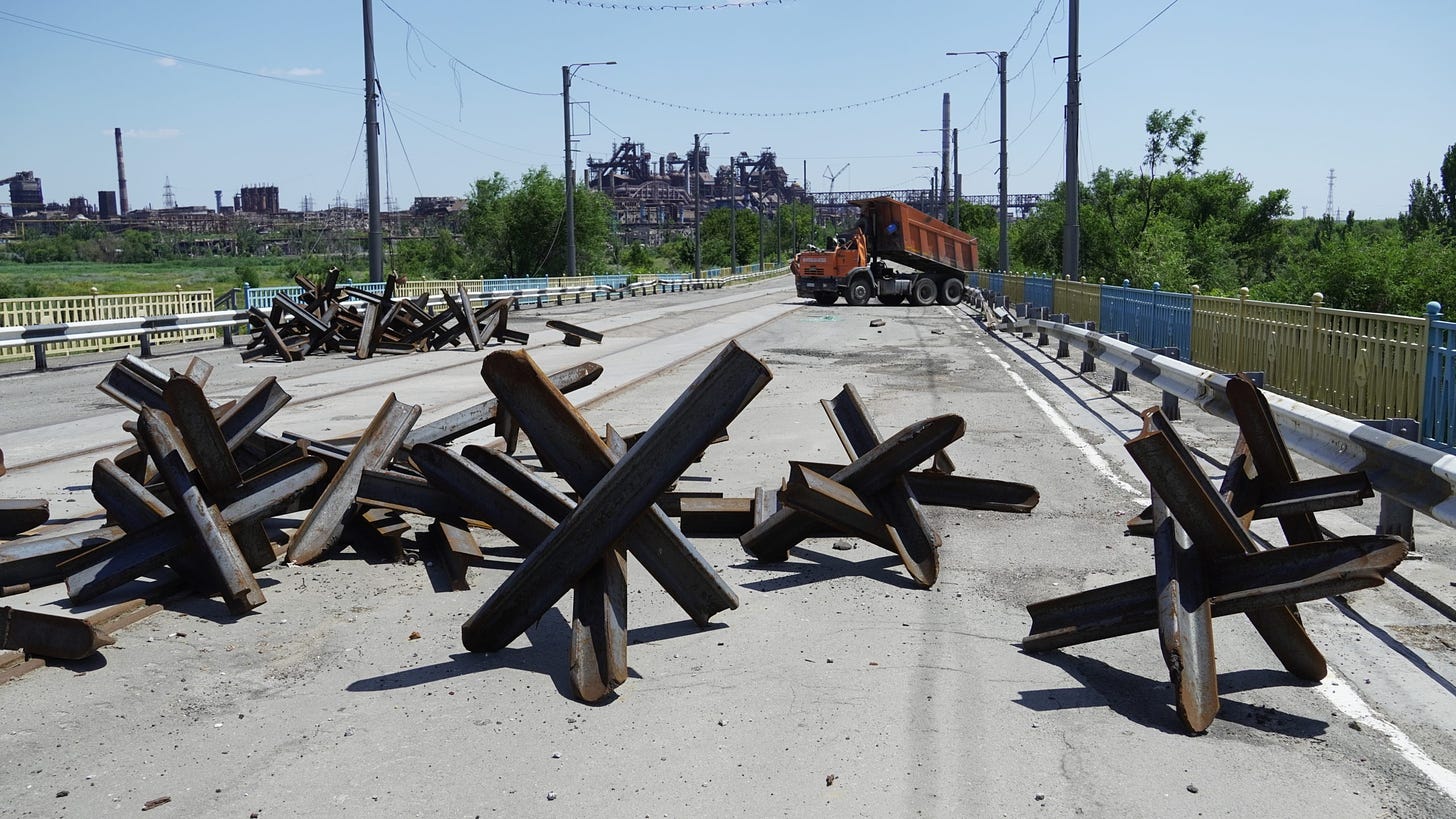

On the opening day of the G-7 Summit in Germany, the Washington Post ran an op-ed by former Deputy Secretary of State and World Bank President Robert B. Zoellick on “How the G-7 can tip the scales towards Ukraine.” Zoellick outlined how allied nations need to begin serious efforts to ensure the nation’s economic survival now—and also begin planning to rebuild the country after the war.
I lived in Kyiv for more than 20 years and barely escaped with my life after the Russian invasion. It is heartening to have someone of Zoellick’s stature throwing his support and influence towards supporting the war for Ukraine's survival. And he is correct in his overall analysis when he writes: “Russia is waging a war of attrition. Artillery shells and logistics dominate. If both sides maintain their will, economic resilience is likely to determine the outcome.”
But after a long career interacting with intelligence officers, I’ve noticed a dichotomy between senior policy makers who come up with grand visions and the “ground truth” of what is involved in the implementation to achieve said vision.
The first obstacle I see when looking at the ground truth of the war is that while the Biden administration has been good (not perfect, but good) in managing the alliance and providing arms, it has not provided a consistent, unequivocal articulation of its objectives.
“I have yet to hear anybody in the US or anywhere in Europe use those words, ‘Defeat Russia,’” said Kurt Volker, the former U.S. special envoy to Ukraine and a former ambassador to NATO in a late March podcast for the American Enterprise Institute. “No one’s talking about defeating Russia. No one’s talking about victory.”
The Biden administration has spent more time talking about what it won’t do, rather than what it wants to accomplish, in Ukraine. These comments are bad for morale, but are also unhelpful in a strategic sense, because they tell Vladimir Putin exactly where the lines are.
Speaking to CBS, former U.S. National Security Advisor H.R. McMaster said, “If you’re not going to do it, just don't talk about it.” He singled out the unhelpful rhetoric in which Biden and his aides assured Putin that there will not be a No Fly Zone, that U.S. forces will not enter the war.
The next ground fact is that Ukraine can be truthfully criticized for corruption and other pathologies that have been a drag on its overall development and a disincentive to foreign investment. Which is why nations pumping aid into the country might be concerned this money could be stolen and/or mismanaged.
The history of the West’s recent attempts at post-war reconstruction are less than encouraging in this regard. A 2009 report by the Special Inspector General for Iraq identified some 154 on-going criminal investigations into allegations of bribery, conflicts of interest, bid rigging, and theft regarding the $100 billion-plus spent by the United States and its allies to support post-war operations and rebuilding.
Parallel to this issue is the fact that the U.S. has a veritable army of reconstruction contractors created over the last two decades who now have nothing to do. It seems possible that these usual suspects will now be pressed into service to rebuild Ukraine.
When I was in Warsaw earlier this year, I saw groups of these contractors roaming through the halls of the Marriott. The most common back-slapping interchange heard when they bumped into one other was “Hey amigo—I haven't seen you since Kabul!”
Which does not inspire a great deal of confidence.
The final ground fact is how other nations perceive America’s inconstancy.
In 2014, Russian invaded Crimea and Barack Obama took no action other than to impose mostly symbolic sanctions on Moscow. This was despite America being a signatory to the 1994 Budapest Memorandum that was supposed to guarantee Ukraine’s territorial integrity.
This agreement had been pressed on the Ukrainians by the U.S. in return for the Warsaw Pact’s nuclear weapons back to Russia. Donald Trump went even further, actively attempting to blackmail Ukraine by withholding military aid while cozying up to Russia. It was only the the full-scale invasion this year which moved America to real action on Ukraine’s behalf.
If America fails to support Ukraine all the way to victory, then other nations are unlikely to believe that they can rely on our assurances. And if they do not believe that we are reliable allies, then they are likely to chart their own courses. Which may be counter to our own interests. They could decide that they would be better off making accommodations with Moscow or Beijing. Or they could decide that the only true guarantee of sovereignty is nuclear proliferation.
Plans are important. But the the ground facts will determine what can and cannot be implemented.









